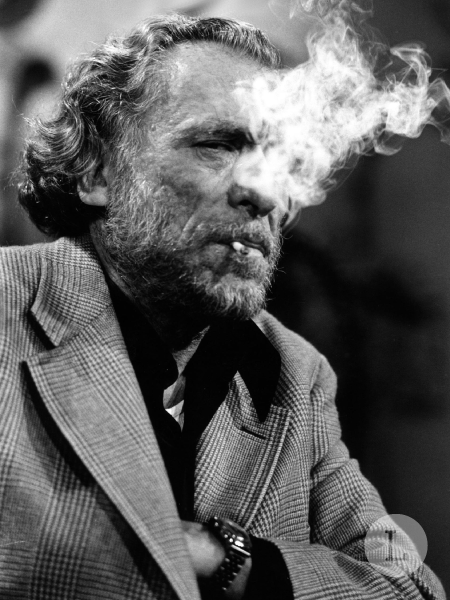
born: AUGUST 16, 1920
died: MARCH 9, 1994
nationality: GERMAN-AMERICAN
movement: DIRTY REALISM, TRANSGRESSIVE FICTION
Charles Bukowski was an influential American poet, novelist, and short story writer known for his unapologetic portrayal of urban life, gritty realism, and raw emotion. With a vast body of work that spanned over four decades, Bukowski’s unique voice continues to inspire and challenge readers worldwide.
EARLY LIFE AND STRUGGLES
Born Heinrich Karl Bukowski in Andernach, Germany, on August 16, 1920, Charles Bukowski immigrated to the United States with his family at the age of two. The family settled in Los Angeles, California, where Bukowski would spend most of his life. Growing up, he faced a difficult childhood marked by poverty, abuse, and a severe case of acne vulgaris that left him with lifelong scars, both physically and emotionally.
Bukowski found solace in literature and began writing at a young age. After a brief stint at Los Angeles City College, he worked various odd jobs and had several tumultuous relationships, all of which fueled his writing with the unfiltered human experience that would become his trademark.
LITERARY CAREER AND THEMES
Charles Bukowski’s literary career took off in the 1950s when he started publishing his poems and short stories in underground newspapers and magazines. His works often featured the downtrodden, the lost, and the disenchanted, capturing the essence of life on the fringes of society. Bukowski’s signature style resonated with readers who were drawn to his raw honesty and unpretentious language.
In 1971, Bukowski published his first novel, Post Office, which chronicles the life of Henry Chinaski, his semi-autobiographical alter ego. Chinaski would reappear in later novels such as Factotum, Women, Ham on Rye, and Hollywood, painting a vivid picture of Bukowski’s life and experiences.
Throughout his career, Bukowski published numerous poetry collections, including Love is a Dog from Hell, The Last Night of the Earth Poems, and Burning in Water, Drowning in Flame. His poetry often touched on themes such as love, death, alcohol, and the struggles of daily life.
NOVELS AND THE BIRTH OF HENRY CHINASKI
In 1971, Bukowski published his first novel, Post Office, which introduced readers to the character of Henry Chinaski, his semi-autobiographical alter ego. The novel chronicled Chinaski’s experiences as a postal worker, offering a glimpse into the soul-crushing bureaucracy and monotony of the job. Chinaski would reappear in later novels, such as Factotum, Women, Ham on Rye, and Hollywood, each providing a window into different aspects of Bukowski’s life and experiences.
POETRY COLLECTIONS AND THEMES
Throughout his career, Bukowski published numerous poetry collections, such as It Catches My Heart in Its Hands, Love is a Dog from Hell, The Last Night of the Earth Poems, Burning in Water, Drowning in Flame, and The People Look Like Flowers At Last. His poetry often explored themes of love, death, alcohol, and the struggles of daily life. The poems were characterized by their raw emotion, powerful imagery, and unflinching honesty, which endeared him to readers and solidified his place in the literary world.
TOP 10 BOOKS
Post Office (1971)
Bukowski’s first novel introduces readers to Henry Chinaski, his semi-autobiographical alter ego. The book chronicles Chinaski’s experiences working in the postal system, exposing the monotony and bureaucracy of the job while offering a glimpse into the everyday struggles of the working class.
Factotum (1975)
In this novel, Bukowski’s protagonist, Henry Chinaski, drifts from one menial job to another, searching for meaning and purpose. The story captures the essence of the American Dream gone awry while highlighting the unrelenting resilience of the human spirit.
Women (1978)
This novel delves into the tumultuous love life of Henry Chinaski as he navigates relationships with various women. Through Chinaski’s experiences, Bukowski explores the complexities of love, desire, and the search for connection.
Ham on Rye (1982)
A semi-autobiographical coming-of-age story, Ham on Rye follows a young Henry Chinaski as he endures a difficult childhood marred by poverty, abuse, and a severe case of acne. The novel serves as a powerful examination of growing up in a harsh world and finding one’s voice.
Hollywood (1989)
In this novel, Bukowski offers a behind-the-scenes look at the film industry through the eyes of his alter ego, Henry Chinaski. Based on the author’s experiences during the making of the film Barfly, Hollywood provides a darkly humorous and candid portrayal of the movie business.
Love is a Dog from Hell (1977)
This poetry collection features a wide range of poems that explore love, lust, loneliness, and the human condition. Bukowski’s raw, unfiltered language and powerful imagery make Love is a Dog from Hell a classic among his works.
The Last Night of the Earth Poems (1992)
In this collection, Bukowski contemplates life, death, and the passage of time with his characteristic honesty and biting wit. The poems reflect the author’s unrelenting search for truth and meaning in a chaotic world.
Burning in Water, Drowning in Flame (1974)
This poetry collection showcases Bukowski’s unique voice and vivid imagery, as he explores themes of urban life, relationships, and the struggle for survival. The poems reveal the depth of Bukowski’s talent and his ability to find beauty in the darkest corners of life.
The People Look Like Flowers At Last (2007)
Published posthumously, this poetry collection features a diverse selection of poems that span Bukowski’s career. The book offers insight into the poet’s evolving style and serves as a testament to his enduring influence on the world of literature.
South of No North (1973)
This collection of short stories showcases Bukowski’s keen observational skills and unflinching exploration of life on the margins of society. The stories delve into themes such as love, loss, and the search for meaning, highlighting the author’s exceptional talent for storytelling.
Each of these books provides a unique perspective on Charles Bukowski’s world, offering a captivating journey through the raw and often dark realities of urban life. Whether you are a seasoned fan or a newcomer to his work, these top 10 books will leave an indelible impression and deepen your appreciation for the literary genius of Charles Bukowski.
INTERESTING FACTS
Charles Bukowski’s life was marked by various intriguing moments and experiences that contributed to his unique perspective and approach to literature. Here are some interesting aspects of his life:
- Abusive Childhood: Bukowski’s childhood was marked by poverty and an abusive father, who would often beat him severely. These experiences instilled in Bukowski a sense of rebellion and a deep understanding of the darker aspects of human nature, which later informed his writing.
- Acne Vulgaris: As a teenager, Bukowski suffered from a severe case of acne vulgaris, which left him with deep facial scars. This condition led to social isolation and a heightened sense of self-awareness, influencing his perspective on beauty, self-worth, and the human experience.
- Love for Literature: Despite his difficult upbringing, Bukowski found solace in literature. He was particularly drawn to authors such as Fyodor Dostoevsky, Ernest Hemingway, and John Fante, whose works resonated with his own experiences and inspired him to pursue a career in writing.
- Menial Jobs: Before becoming a successful writer, Bukowski held various menial jobs, including working in a slaughterhouse, a dog biscuit factory, and as a gas station attendant. These experiences provided him with firsthand knowledge of the struggles faced by the working class, a theme that would feature prominently in his writing.
- Near-fatal Bleeding Ulcer: In 1955, Bukowski suffered a near-fatal bleeding ulcer exacerbated by his heavy drinking. The experience forced him to reassess his life, ultimately motivating him to pursue his writing career more seriously.
- Prolific Writer: Bukowski was known for his incredible work ethic and prolific output. He often wrote every day, producing thousands of poems, hundreds of short stories, and several novels throughout his career. He was known to say, “Writing about a writer’s block is better than not writing at all.”
- Late Success: Bukowski’s literary career only took off when he was in his late 40s, after he had already spent decades working odd jobs and writing on the side. His perseverance and determination eventually paid off, as he became a celebrated author and poet.
- Relationships with Women: Bukowski’s tumultuous relationships with women were a recurring theme in his work, as demonstrated in his novel Women. The author candidly depicted the complexities of love, desire, and human connection through his own experiences and the character of Henry Chinaski.
- The “Laureate of American Lowlife”: Bukowski was often referred to as the “laureate of American lowlife” due to his unflinching portrayal of the darker aspects of society. His work was celebrated for its raw honesty and ability to capture the essence of life on the fringes.
- Legacy and Influence: Despite his passing in 1994, Bukowski’s impact on literature endures. His work has inspired numerous authors, musicians, and filmmakers and continues to captivate readers worldwide.
These interesting aspects of Charles Bukowski’s life demonstrate the resilience of the human spirit and the power of art to transform even the most difficult experiences into lasting, meaningful creations.
LEGACY AND INFLUENCE
Charles Bukowski’s uncompromising style and willingness to depict the raw underbelly of American society earned him a devoted following and critical acclaim. His work has been translated into multiple languages and has inspired countless artists, musicians, and writers.
Though Bukowski passed away on March 9, 1994, his impact on the literary world remains strong. With a legacy that continues to grow, Charles Bukowski’s work serves as a testament to the power of authenticity and the resilience of the human spirit.
FAMOUS BOOKS

Factotum is a novel by Charles Bukowski, first published in 1975. The book is a semi-autobiographical work and tells the story of Henry Chinaski, Bukowski’s alter-ego, as he moves from one dead-end job to the next in search of meaning and purpose.
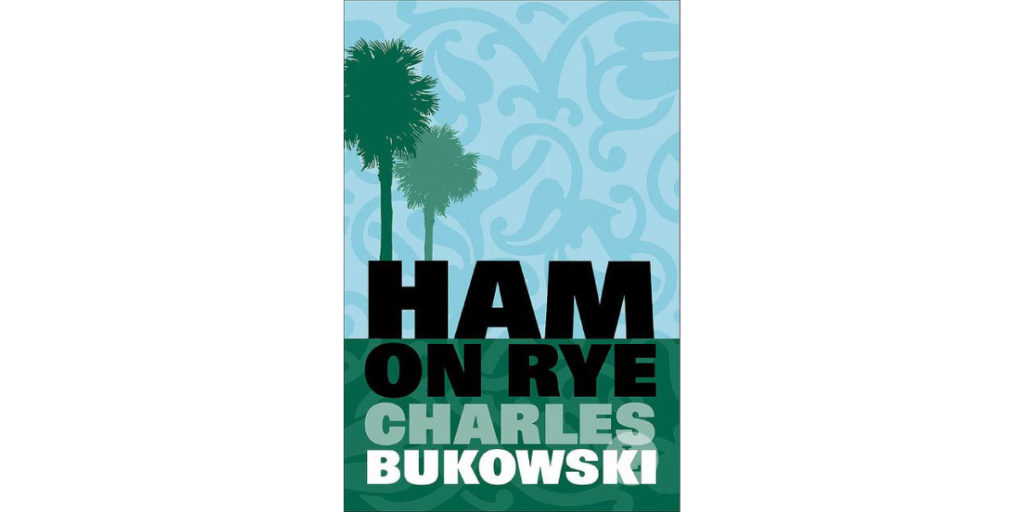
Ham on Rye is a semi-autobiographical novel by Charles Bukowski, published in 1982. The novel is a coming-of-age story that follows the protagonist Henry Chinaski, a thinly-veiled version of Bukowski himself, as he navigates his troubled childhood and adolescence in Depression-era Los Angeles. Through Henry’s experiences, Bukowski paints a vivid and often harrowing picture of life on the margins of society, where poverty, violence, and alcoholism are ever-present dangers.
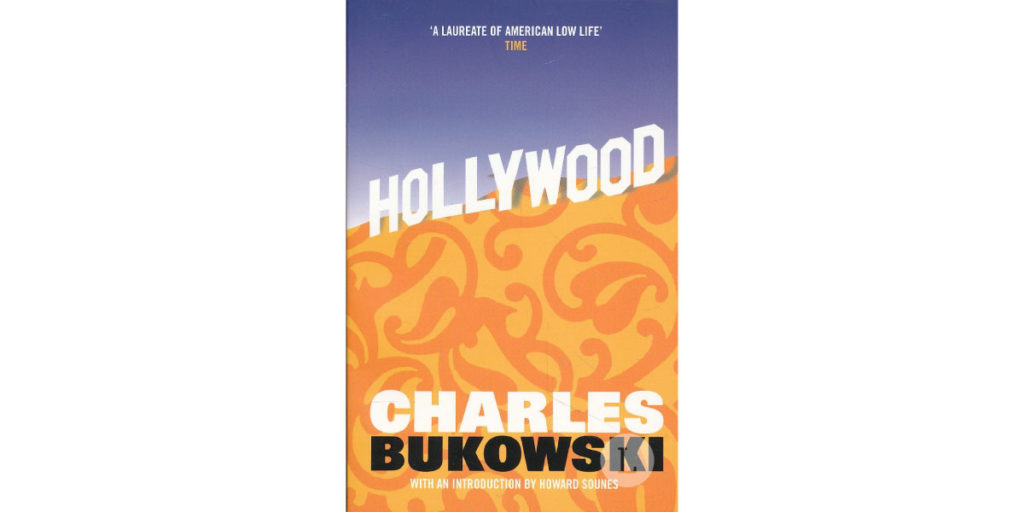
Hollywood is the final novel by Charles Bukowski, it was written in the late 1980s and it was published in 1989. The novel follows the story of Henry Chinaski, a fictionalized version of the author himself, as he navigates his way through the seedy underbelly of Hollywood and the film industry.
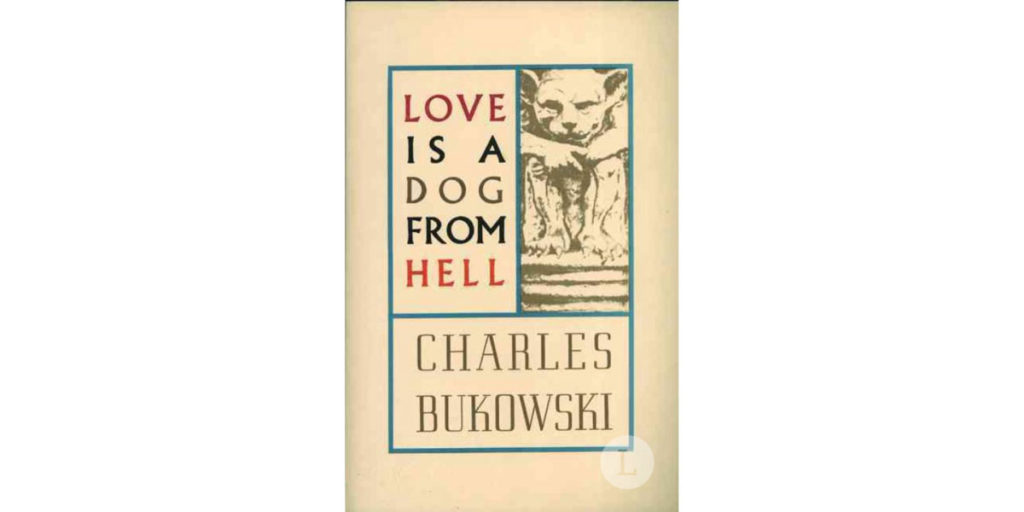
Love is a Dog from Hell is a collection of poems written by Charles Bukowski and published in 1977. The book contains some of Bukowski’s most celebrated works, and it deals with themes such as love, sex, alcoholism, and the difficulties of everyday life.
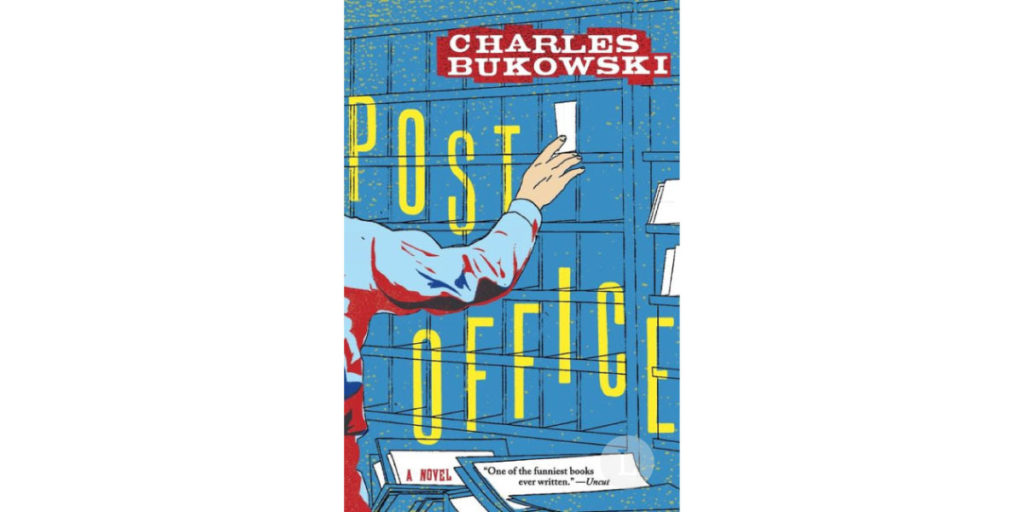
Post Office by Charles Bukowski is a novel that tells the story of Henry Chinaski, a fictionalized version of the author himself, as he struggles to make a living working dead-end jobs and trying to make a name for himself as a writer. The novel follows Chinaski as he takes a job at the post office, where he is forced to deal with the monotony and bureaucracy of the job, as well as the eccentric and often hostile people he works with.
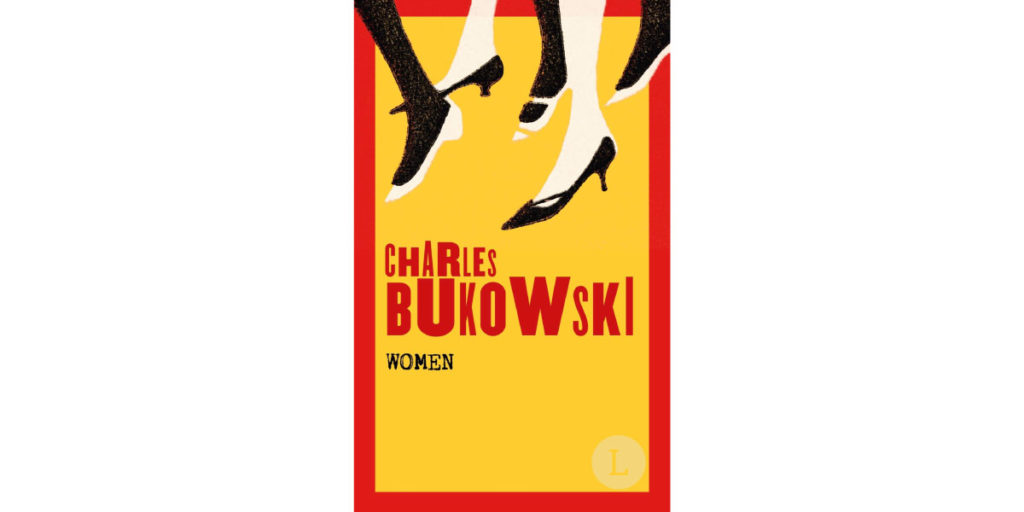
Women by Charles Bukowski is a novel that delves deep into the complexities of human relationships and emotions, specifically the emotions and experiences of men and women in their relationships. The novel follows the story of Henry Chinaski, a fictionalized version of the author himself, as he navigates his way through a series of relationships with various women.
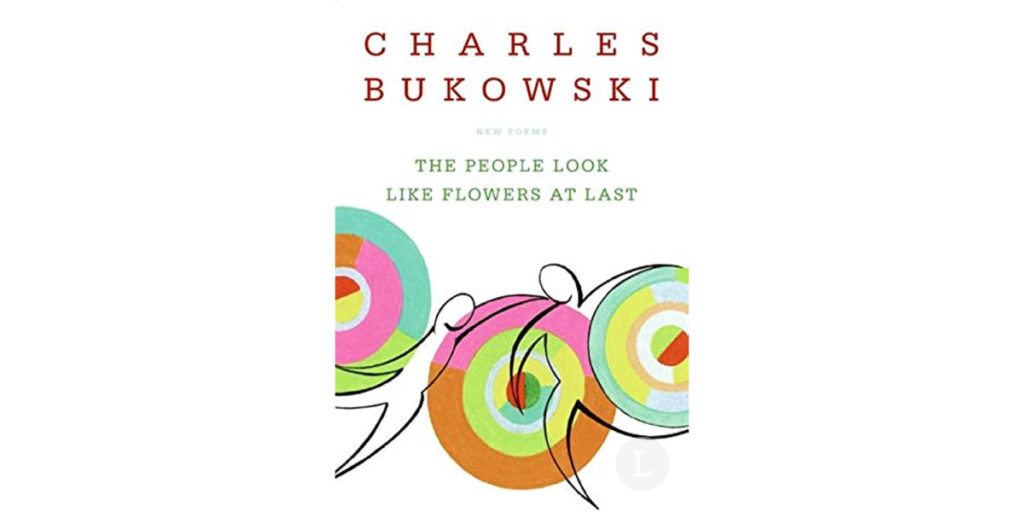
The People Look Like Flowers at Last is a posthumously published collection of poems by Charles Bukowski, one of the most prolific and controversial American writers of the 20th century. The book was released in 2007, five years after Bukowski’s death, and it contains poems that span the entire course of his career, from the 1940s to the 1990s.
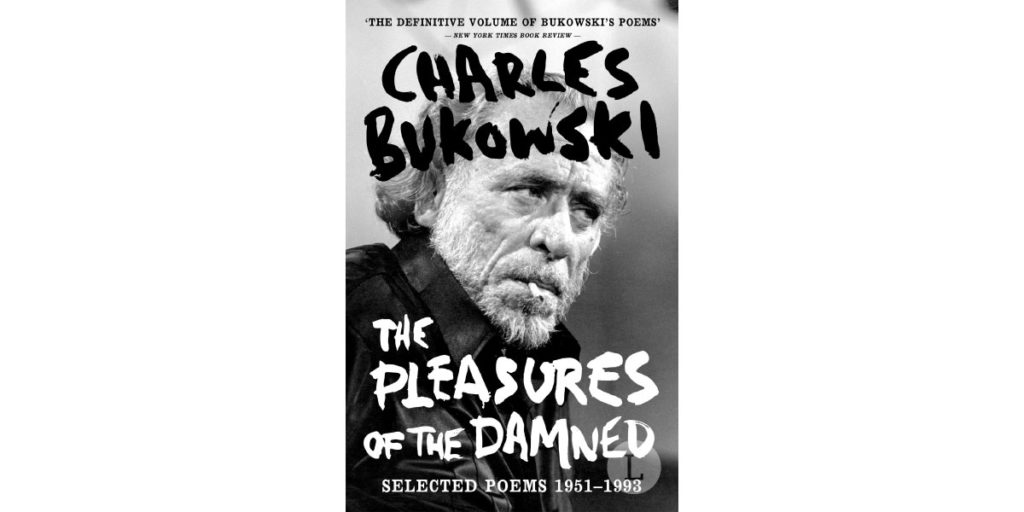
The Pleasures of the Damned, published posthumously in 2007, is a carefully curated collection of the finest poems by acclaimed American poet and novelist Charles Bukowski. Spanning a creative period of over five decades, from the 1950s until his death in 1994, the anthology presents a diverse and expansive selection of Bukowski’s poetry, showcasing his unique voice, raw emotion, and unapologetic exploration of life’s darker aspects.
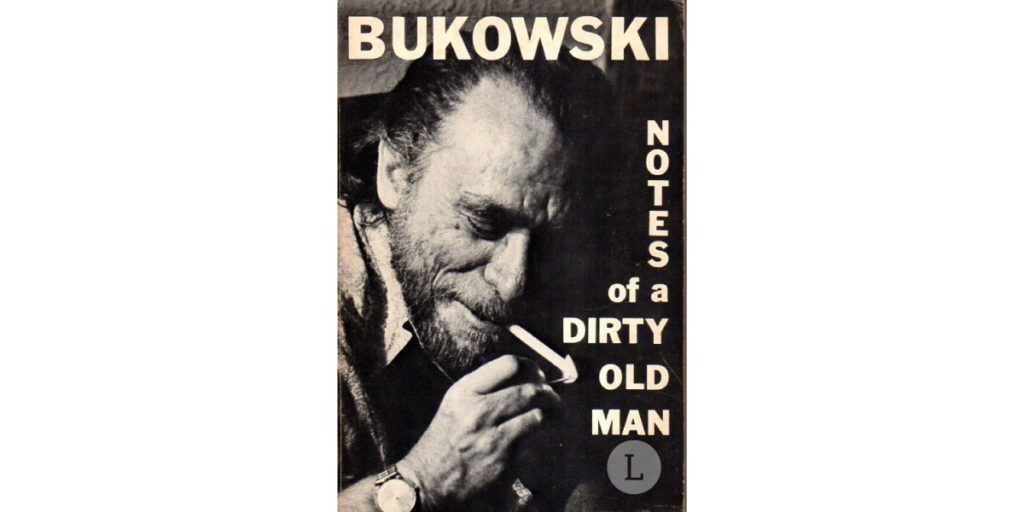
Notes of a Dirty Old Man, a collection of columns written by Charles Bukowski and published in 1969, is a provocative and unapologetically honest exploration of the darker corners of human experience. The book compiles a series of articles that Bukowski originally wrote for the underground newspaper Open City between 1967 and 1969, showcasing the author’s raw and gritty literary style, as well as his unique insights into the human condition.

Flower, Fist, and Bestial Wail is the first poetry collection by Charles Bukowski, an American poet, novelist, and short story writer known for his raw, gritty, and unapologetic voice. Published in 1959, this volume marked the beginning of a long and prolific career for Bukowski, who would go on to become a significant figure in American literature. The collection delves into themes such as the harsh realities of urban life, the struggle for survival, the search for human connection, and the weight of societal expectations.
